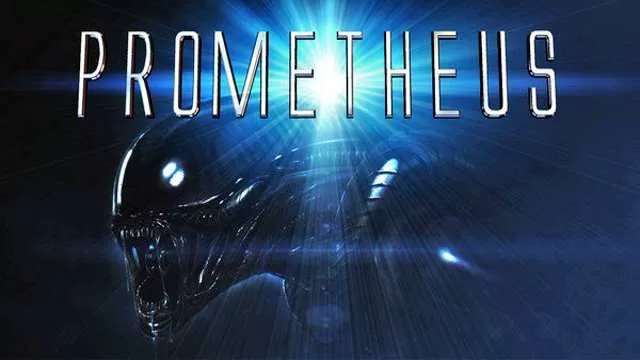When Prometheus hit theaters in 2012, it marked Ridley Scott’s long-awaited return to science fiction after a three-decade hiatus. As a prequel to his groundbreaking 1979 film Alien, Prometheus had big shoes to fill and immense expectations to meet.
What Scott delivered was a visually stunning, philosophically rich film that both thrilled and perplexed audiences. Here, we’ll dive into what makes Prometheus such a fascinating entry in the sci-fi genre, why it stands out from its predecessors, and why it’s still worth watching today.
Legacy of Alien and Scott’s Return to Sci-Fi
Prometheus is set in the same universe as Alien but serves as a prequel that explores the origins of the iconic xenomorphs. However, Scott was adamant that this film would stand on its own, focusing on grander themes than just extraterrestrial terror. The film follows a group of scientists and archaeologists led by Dr. Elizabeth Shaw (Noomi Rapace) as they embark on a journey to uncover the origins of humanity. Their mission leads them to a distant planet, where they hope to find answers about who created us and why.
Scott’s return to sci-fi was met with both excitement and skepticism. After all, Alien and Blade Runner (1982) had set a high bar, and Scott hadn’t revisited the genre since then. The question on everyone’s mind was whether Prometheus could live up to the legacy of its predecessors. While Prometheus is undeniably linked to Alien, it carves out its own identity by tackling deeper philosophical questions.
Visual Mastery of Ridley Scott
One of the most striking aspects of Prometheus is its visual design. Scott has always been known for creating immersive, believable worlds, and Prometheus is no exception. The film’s set design, particularly the interior of the spaceship, recalls the claustrophobic, white-walled corridors of Alien, but with a modern, sleek upgrade. The cinematography and visual effects are top-notch, bringing the eerie, otherworldly landscapes to life in breathtaking detail.
What sets Scott apart as a filmmaker is his commitment to practical effects. While many directors rely heavily on CGI, Scott prefers to build real sets whenever possible, adding a layer of realism that’s often missing in today’s films. This approach not only enhances the authenticity of the world he’s creating but also grounds the film’s more fantastical elements. The result is a film that feels both epic and intimate, transporting viewers to a world that is as terrifying as it is beautiful.
Philosophical Themes and Big Questions
While Alien was a straightforward horror film, Prometheus ventures into more complex territory. The film grapples with existential questions about creation, purpose, and the nature of belief. The characters in Prometheus are not just fighting for survival; they are searching for answers to some of humanity’s oldest and most profound questions. Where do we come from? Who created us? Why are we here?
Dr. Elizabeth Shaw, the film’s protagonist, is a devout Christian who wears a cross around her neck even as she questions the existence of God. Her journey in Prometheus is as much about finding faith as it is about finding the Engineers, the mysterious beings who may have created humanity. This exploration of faith versus science adds a layer of depth to the film that elevates it above a typical sci-fi thriller.
Interestingly, Prometheus also touches on themes explored in Blade Runner, particularly the desire for more life and the inevitability of death. The character of Peter Weyland (Guy Pearce), the billionaire who funds the mission, is obsessed with finding a way to extend his life, reflecting Scott’s own preoccupation with mortality as he approaches the later stages of his career.
Controversy and Criticism
Despite its many strengths, Prometheus was not without its critics. Some viewers were frustrated by the film’s ambiguity and the characters’ often illogical decisions. The scientists in the film, for instance, make a series of questionable choices that put them in harm’s way, leading some to question their competence. However, these moments can be seen as necessary plot devices in the context of a horror film, where characters often have to make risky decisions to advance the story.
Another point of contention was the film’s connection to Alien. While Prometheus does eventually tie into the Alien mythology, it does so in a way that leaves many questions unanswered. This ambiguity was intentional on Scott’s part, as he wanted to leave room for further exploration in potential sequels. For some fans, this lack of resolution was unsatisfying, but for others, it added to the film’s mystique.
Enduring Appeal of Prometheus
Despite the mixed reactions, Prometheus has earned a place as a modern sci-fi classic. Its ambition, visual splendor, and philosophical depth set it apart from many other films in the genre. While it may not have the same visceral impact as Alien, it offers a more cerebral experience that invites repeated viewings and deep contemplation.
Scott, who was 74 at the time of making Prometheus, proved that he still had the creative energy and vision to push the boundaries of science fiction. The film’s exploration of big ideas, combined with its stunning visuals and suspenseful storytelling, make it a must-watch for any sci-fi fan.
Conclusion
Prometheus is a film that defies easy categorization. It’s a prequel, but it’s also a standalone story. It’s a sci-fi epic, but it’s also a philosophical meditation on creation and belief. Ridley Scott’s return to the genre that made him a household name is nothing short of remarkable. Whether you’re a fan of the Alien franchise or just love thought-provoking cinema, Prometheus offers something for everyone. As we continue to debate its themes and dissect its mysteries, one thing is clear: Prometheus is a film that will stand the test of time.

